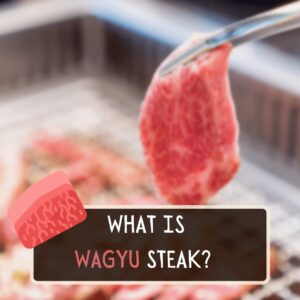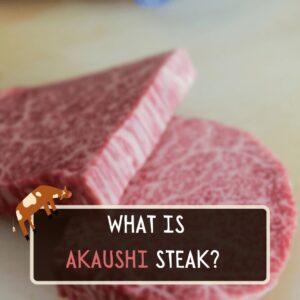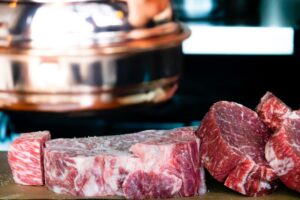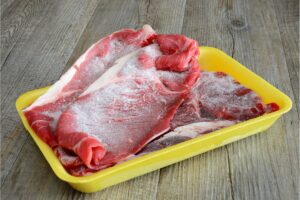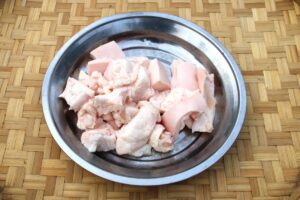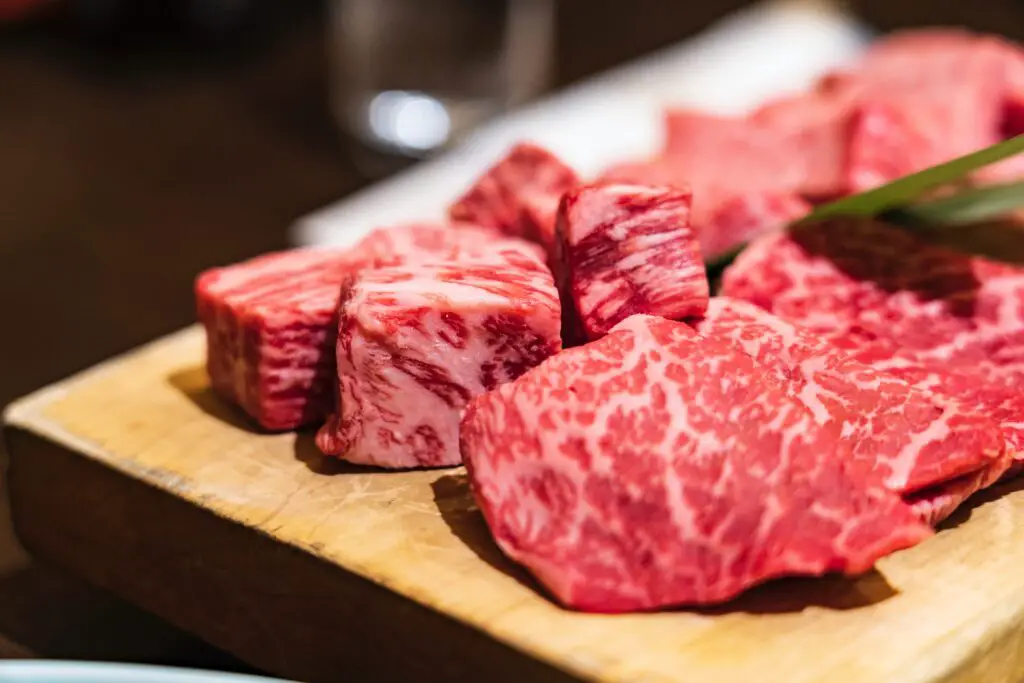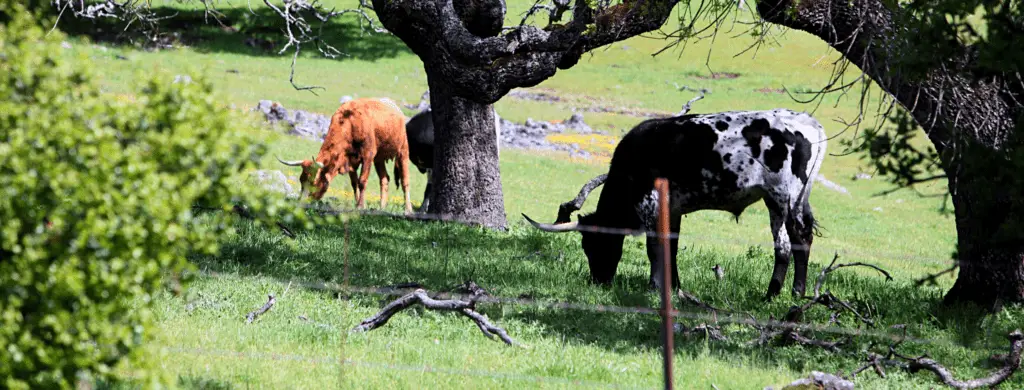
Wagyu is a Japanese beef cattle breed and is renowned for its taste, tenderness, and marbling.
However, people who have never tried wagyu or are simply curious might be wondering: is wagyu beef grass-fed?
In this article, I cover some key information about wagyu beef, from whether American wagyu beef is grass-fed to whether grass-fed beef has marbling.
Let’s get started.
Is American Wagyu Beef Grass-fed?
Originating in Japan, a small number of genetic lines of wagyu cattle were brought to the US in the 1980s and 1990s. However, Japan has since declared wagyu cattle a national treasure and has ceased all exports. So, is American wagyu grass-fed?
It depends on the farm that is raising the wagyu in question. Many U.S. farms raising American wagyu tend to feed their cattle a combination of grass and grains, whereas others exclusively feed their cattle grass.
The majority of cattle are fed grass and are marketed as grass-fed as a result of that. However, here lies a problem.
It is important to note that a lot of cows are fed grass, yet are finished on grain as it rapidly fattens them and produces the heavier, marbled type of beef most Americans are used to.
That being said, cows do not naturally eat grain, and this unnatural diet can make them very ill. When farmers fatten their cattle on a heavy-starch grain diet, the healthy pH 7 in their systems drops to an acidic pH 4, leading to a fermentation bacteria that can make the cow sick and requires antibiotics.
In fact, a grain diet can lead to a variety of different health issues[1] that require drugs, and cows are also often given growth hormones to supplement their growth in a shorter space of time.
Despite the benefits of wagyu, grain feeding cattle can also decrease the nutritional value of the meat, as it is generally perceived to be of lower quality in comparison to grass feeding.
On the other hand, truly natural grass-fed beef refers to cattle that are exclusively fed on their mother’s milk and grass from birth to harvest.
These cows have a normal pH 7 balance in their system, which contributes to a healthy fat balance of omega-3s, omega-6s, and conjugated linoleic acid (CLA). Bearing this in mind, then, the healthier the cow the healthier the meat, and the healthier it will be for you as a consumer.
The saying ‘you are what you eat’ applies in this context, too!
It is also good to know that the cow has led a healthy life, as this not only contributes to the flavor of the meat but is reassuring to know that they were well looked after from birth to harvest.
After all, you’d rather know that you’re supporting a farm that cares and looks after their animals than one that doesn’t, right?
Generally speaking, as wagyu beef is such a premium product, farmers take great pride in providing a humane life for their cows. They are often given plenty of room in their pens and outside on the pasture to graze. This is one of the reasons why wagyu steak is so good.
They often share a pen with only five other cows, whereas mass operations tend to keep dozens of cows in a single pen. This stress-free grazing environment is what encourages the famous marbling that wagyu beef is known for, as I go into more detail below.
Does grass-fed beef have marbling?
So, what makes wagyu a premium product? It primarily comes down to the marbling throughout the beef, which creates a luxurious, buttery tenderness unlike any steak from cattle raised in America and is what wagyu is renowned for.
Wagyu beef marbling is so superior to domestic American beef that a combination of an American and Japanese grading system is used.
USDA Prime (the highest-graded USDA grade for beef) ranges from 3+ to 4. Wagyu beef receives a 5 to 8 on the more stringent Japanese scale. Wagyu cattle are genetically predisposed to intense marbling.
Farmers can further encourage the marbling by confining the cattle to small pens and feeding them an energy-dense diet, but generally speaking, farmers that are raising wagyu cattle try to encourage a stress-free grazing environment.
This is because stress and adrenaline can contribute to tensed muscles that ultimately result in tougher meat overall for the consumer. That being said, the less stress the wagyu cattle feel, the better the overall result and quality of their meat will be.
As a result, the farmers have an invested interest in treating their cattle as well as they can before harvest to ensure the meat is the best quality overall.
It is also worth mentioning that marbling hugely impacts and is beneficial to the juiciness and flavor of the beef. Generally speaking, this is because it aids the entrapment of moisture in the meat and melts through it during the cooking process.
While fat keeps beef moist and succulent, it is also what gives steak that melt-in-the-mouth richness that we all know and love. There is a difference in flavor between grass-fed and grain-fed beef.
Aside from the health benefits that come from grass-fed cattle, marbling in a steak from grass-fed cattle offers a beefier and richer flavor in comparison to grain-fed cattle, which tend to have a fattier flavor.
In summary
Some wagyu beef cattle are grass-fed, whilst others are fed a combination of grass and grains.
Grass-fed cattle are considered healthier than grain-fed cattle, although a lot of farms still raise wagyu cattle on a combination of both.
It is also worth noting that although a lot of wagyu beef and beef in general is marketed as grass-fed, this often doesn’t mean that it is exclusively fed grass. Cattle are often supplemented with grains, so it is worth looking into the supplier of your wagyu to learn more.
You can search locally and do some legwork whether you have some source of Wagyu beef close by. Alternatively you can either try Crowdcow for 100% full-blood A5 Wagyu or SnakeRiverFarms for American Wagyu at an unbeatable price.

